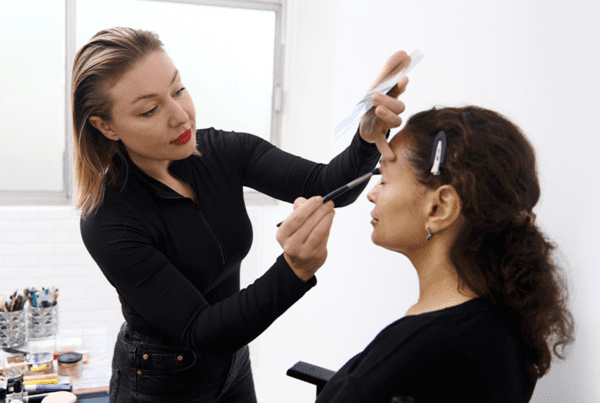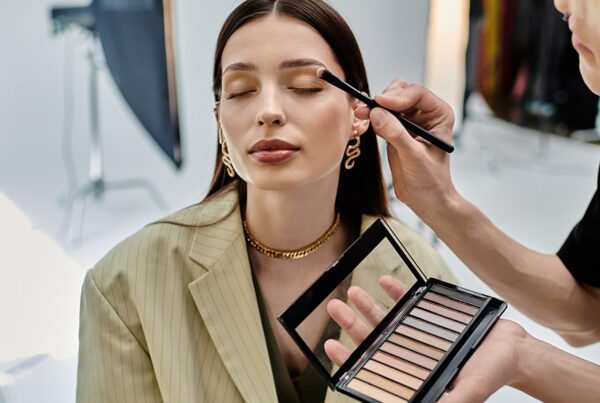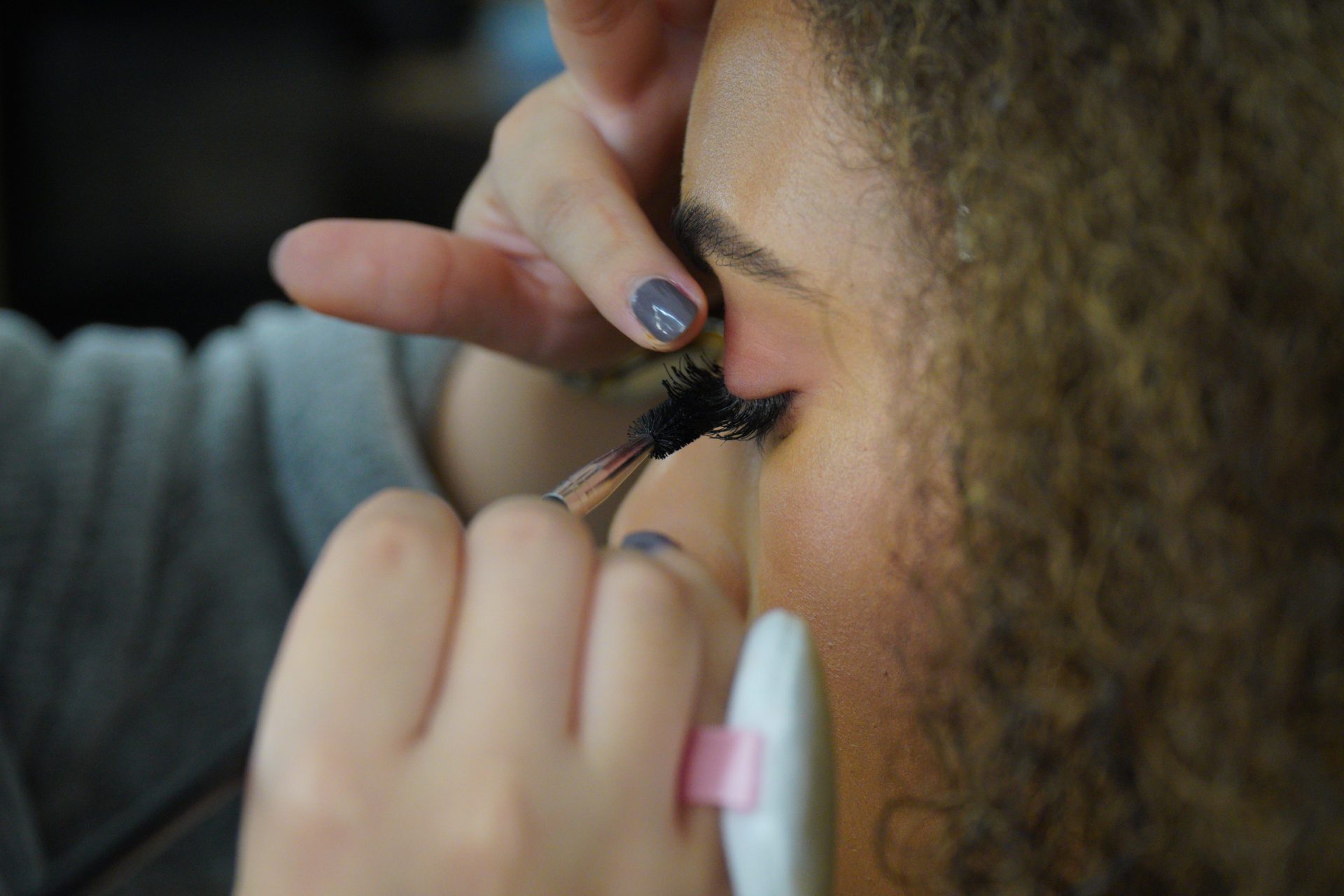
With the improvements in the art of makeup, there’s an increasing demand for professional makeup artists in various industries. From photography to modeling or film, many opportunities are available for those with the talent and drive to succeed in the field of makeup.
If you’re thinking about building your career in makeup artistry in specialized courses, you must learn some tips on preparing yourself for makeup artist schools.
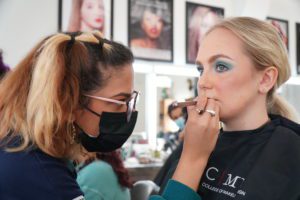
Choose the Right Makeup School for You
Match your course with your career path
Makeup artistry schools offer many makeup career opportunities, from beauticians to cosmetologists, celebrity makeup artists, bridal makeup artists, special effects makeup artists, fashion makeup artists, and more.
If you want to pursue a specialized makeup artistry career, research the different specializations at various advanced makeup courses and find your ideal option for formal training.
The curriculum
Learning professional makeup skills requires a lot of hard work, both in theory and practice. So the more detailed, hands-on, and intensive a course is, the more you will learn and build your skill set.
While there are many makeup programs available with mandatory hours and weeks options, opt for professional programs that offer a range of subjects, including hair styling and basic skin care.
The credentials of the instructors
Any training school is only as good as its teachers. Before deciding on a makeup school, check on the quality of the trainers if they’re industry professionals.
Look out for practical experience, the quality of their work, and what previous students have to say about the instructors.
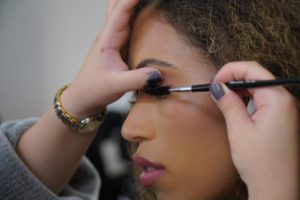
Support beyond the curriculum
A good makeup school will provide support beyond the listed curriculum, often in the form of career advice, comprehensive training, and access to industry opportunities.
Your makeup institute should also be able to assist with any industry questions you may have, the process of hands-on training, product knowledge, and how to build a portfolio for success.
Flexibility of learning
While there are many options for in-person makeup classes, the digital era also means that online learning is slowly replacing physical learning spaces.
Would you like a more hands-on approach, or are you comfortable learning at your own pace in the comfort of your home? Either way, choose a course that fits your schedule with its training hours and suits your learning style.
Diploma and Certification
When choosing a type of makeup schooling, the credentials must match your chosen career path in the makeup industry. Find out as much as possible regarding what you can do with your makeup artistry diploma or certificate on completion.
How to Make the Most Out of Makeup School
Pay attention in class
Take in all the information you can from your trainers and the quality education. The professional instructors at good makeup artistry schools are accredited with years of industry experience and knowledge of makeup training to share with you — much more than you will find in a textbook.
Practice your makeup application skills
The more practice you get, the more your makeup skills will improve. Not only do you recall everything you have learned in the theoretical aspects of your makeup artistry program, but you can also fine-tune challenging areas and see where you need extra learning.
Create a practice schedule with friends, alumni, or even freelance photographers looking for a beginner makeup artist. In this way, you can also get a feel for the industry and what it is like to be a freelance makeup artist.
Don’t forget to photograph your work. You might be able to use some of it for your makeup portfolio.
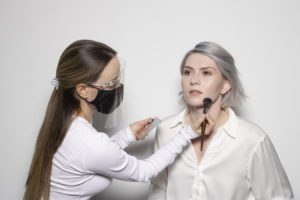
Think outside the box
Being creative requires you to express yourself, and makeup artistry is no different as there’s an artistic aspect. It doesn’t matter which specialized skills you choose to go into; find a way to show your skills, talent, and who you are to stand out in the crowd.
Network and shadow professional makeup artists
Learn from the pros by offering to assist them whenever the opportunity arises. Hands-on experience is irreplaceable for advanced techniques, and you might even learn some secrets of the beauty trade.
Build your network, starting with your instructors, and offer to assist with any extra makeup jobs. In such a high-demand industry, it’s vital to have good connections with artists with experience.
Different Types of Makeup Artists
There is a wide range of unique options in the makeup industry. Here is a list of some of the most common career paths you can take once you have completed your makeup artistry course:
- Retail makeup artist
- Makeup consultant
- Makeup for photoshoots
- Working in a salon doing client’s makeup
- Starting your own business
- Being a product representative for brands
- Bridal Makeup
- Theater makeup
- Film and Television makeup artist
- Runway makeup for the fashion industry
- Special effects makeup artist for movies such as horror makeup
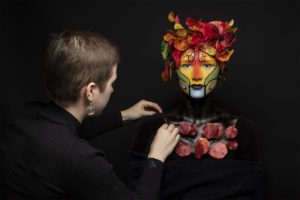
Frequently Asked Questions
What are the different makeup courses available, and what do they entail?
Makeup coursework begins with the fundamentals of makeup application and skincare, such as understanding the science of complexion, treating any issues, skin analysis, and preparing the face for makeup application.
Some courses, like those at CMU College, extend to more specialized fields, such as creature design, prosthetics, and Special FX make up.
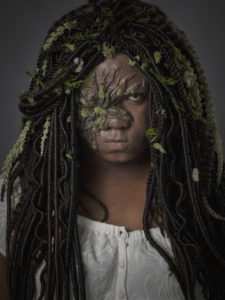
What are the next trends in cosmetic art?
Makeup and beauty trends change every year and season. Lately, there has been an increase in bold colors that highlight the lips and eyes. According to Marie Claire, this year, we’ve seen a lot of emphasis on old trends, such as white eyeliner and face jewels, making a comeback.
What are the benefits of makeup?
Makeup is more than face art. It is a way to restore confidence by highlighting features that make us look beautiful.
With all the knowledge gained during your makeup coursework, you can best advise clients on what works for their skin types and features. In this way, clients feel and look their best.
What can you do once you are a certified makeup artist?
Getting your credentials in your makeup program will open the doors to the beauty industry for you. With a diploma, you stand a better chance at landing jobs than applicants who don’t have the backing of accredited makeup education.
What are the benefits of training?
Aside from learning skillful makeup techniques and practices, training will also provide you with skincare basics, the science behind skin tones, and how to work with clients.
What skills do makeup artists have?
Professional makeup artists have good interpersonal skills. It is an in-contact role, so you must be comfortable being in someone’s face all day.
An eye for creativity is also required, as the trends change constantly. Adapting to new styles and adding your creative flare will help you gain more clients and do better makeup.
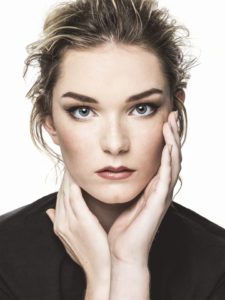
What is the best way to ensure clients are happy?
As a makeup artist, you’ll need to listen to your client’s needs and then communicate any suggestions effectively.
The client might have different ideas about what works for them. Strive to reach a happy middle, where both you and the client are satisfied, through clear and respectful communication.
How do I secure a spot at a good makeup school?
You first need to decide which makeup school you would like to attend based on the makeup coursework it offers and your career choice.
Once you have chosen a school, fill in the application forms, and pay attention to the admissions requirements.
If you have a portfolio of work, you’ve done before seeking training, some schools also request that you submit that.
I am interested in becoming a makeup artist. But how much does it cost?
The average tuition costs $10,000 – $27,000, depending on the courses and the makeup school you choose. However, there are often scholarships available for those who qualify.
Final Thoughts
Becoming a certified makeup artist gives you an edge over your competitors. Make sure you are ready to learn and absorb as much as possible from your instructors to get the best makeup artistry jobs.
For more information on admissions to makeup schools, visit CMU College to browse the different courses available and the fee structure.


